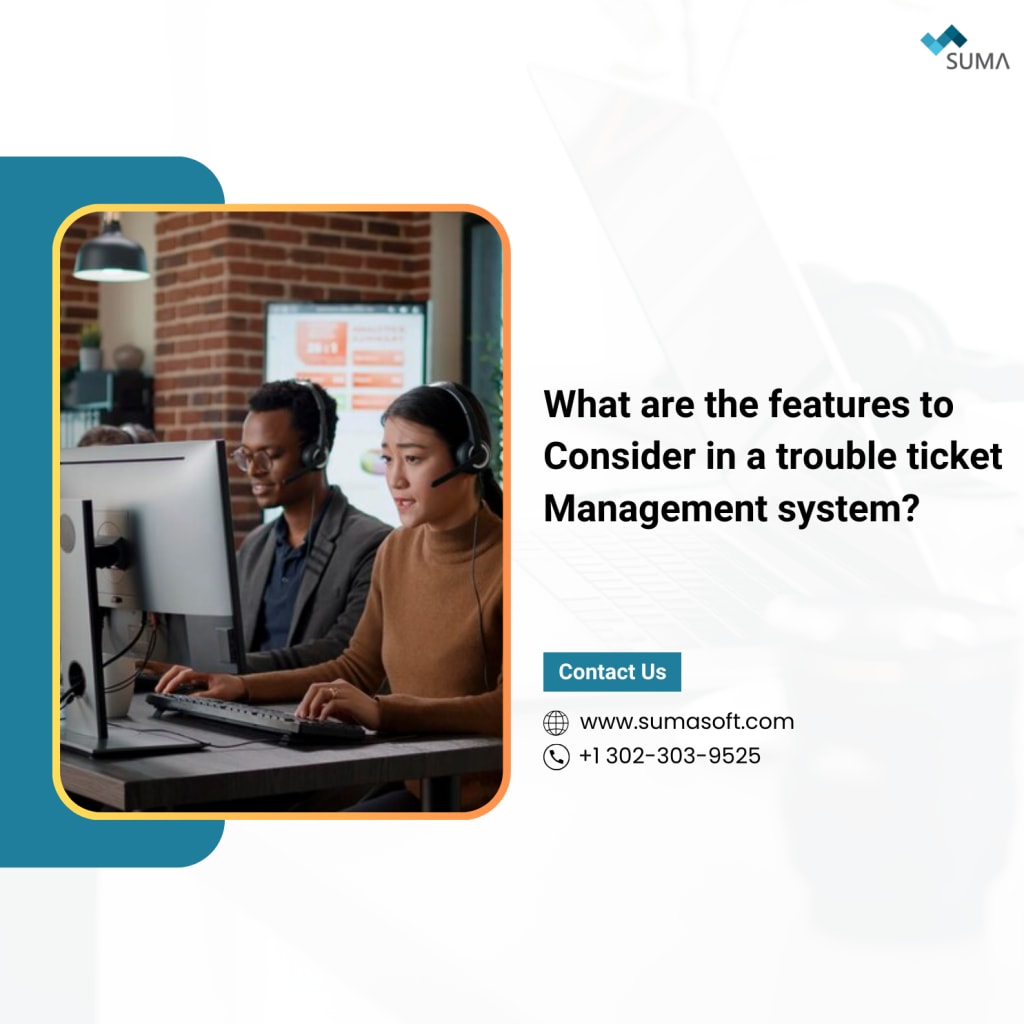What are the features to consider in a trouble ticket management system?
Power Up Your Support: Selecting a Trouble Ticket System with the Right Features

In today's fast-paced business environment, even minor technical glitches can cause significant disruptions and impact your bottom line. An efficient trouble ticket management system is crucial for streamlining technical support services, ensuring timely issue resolution, and running your operations smoothly. However, with a wide range of options available, choosing the right system can be overwhelming.
This article details the key features you should consider when selecting a trouble ticket management system to optimize your technical support operations.
1. Seamless Ticket Submission and Tracking
The core function of any trouble ticket system is to provide a user-friendly platform for submitting and tracking support requests. Look for a system that allows users to submit credentials through various channels, such as email, web portal, or even mobile app. This multi-channel approach ensures easy accessibility for everyone on your team, regardless of location or preferred communication method.
Furthermore, the system should offer clear and intuitive forms for users to provide detailed descriptions of their issues. Consider features that allow attaching screenshots or relevant files to clarify the problem further. Once a ticket is submitted, users should be able to track its progress in real time, with updates on the status and estimated resolution time.
2. Efficient Ticket Routing and Management
A well-designed system automates ticket routing, ensuring issues reach the most qualified support personnel. This can be achieved through pre-defined rules based on the nature of the problem, urgency level, or specific skill sets required. For instance, network connectivity issues might be routed to IT specialists, while software installation problems could be directed to a dedicated team.
Effective ticket management also involves the following:
Assigning tickets to specific technicians.
Setting priorities.
Managing dependencies between related issues.
The system should provide a centralized platform for support staff to collaborate, share updates, and track the progress of each ticket's resolution.
3. Powerful Reporting and Analytics
Data is king in today's business world, and a trouble ticket management system should empower you with insightful reporting and analytics. Look for a system that generates comprehensive reports on various aspects of your technical support operations, including:
Ticket volume and trends: Identify peak periods for technical issues and plan resources accordingly.
Resolution times: Track the average time to resolve problems and identify improvement areas.
First contact resolution rate: Measure the effectiveness of your support team in resolving issues during the initial interaction.
Most common issues: Gain insights into recurring technical problems and prioritize efforts to prevent future occurrences.
By leveraging these reports, you can identify bottlenecks in your support process, optimize resource allocation, and make data-driven decisions to improve your technical support services continuously.
4. Robust Security and User Management
Technical support Services often involve sensitive data, so robust security features are paramount. Choose a system that encrypts all communication channels and stored data to safeguard confidentiality. Additionally, the system should provide granular user access management to ensure only qualified personnel can access specific ticket information and functionalities.
5. Seamless Integration and Scalability
A sound trouble ticket management system integrates seamlessly with other critical business tools you might be using. This could include integration with your CRM system to link support requests with customer information or with your project management platform to track the impact of technical issues on ongoing projects.
Scalability is another vital consideration. As your enterprise grows, the needs of your technical support services will evolve as well. The chosen system should scale to accommodate increasing users, tickets, and data volume without compromising performance.
Investing in the Right System: A Strategic Advantage
Implementing an effective trouble ticket management system is not just about resolving technical issues; it's about creating a strategic advantage for your business. According to, businesses that prioritize customer support experience a 67% higher customer lifetime value. By streamlining your technical support Services, you can:
- Improve customer satisfaction and loyalty.
- Reduce downtime and ensure business continuity.
- Increase the productivity of your workforce.
- Gain valuable insights to address potential issues proactively.
Choosing the right trouble ticket management system requires carefully reviewing your needs and budget. By focusing on the features outlined above, you can ensure you select a system that empowers your technical support Services team to deliver exceptional service, keeping your enterprise running smoothly and efficiently.






Comments
There are no comments for this story
Be the first to respond and start the conversation.